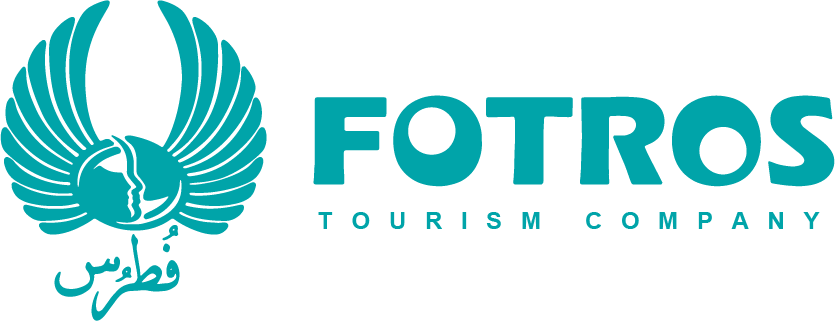
Medical Surgeries
Discectomy


A discectomy is a surgical procedure used to remove a portion of an intervertebral disc in the spine. The intervertebral discs act as cushions between the vertebrae, providing flexibility, shock absorption, and allowing movement of the spine. When a disc herniates or bulges, it can put pressure on nearby nerves, causing pain, numbness, or weakness. In such cases, a discectomy may be recommended to alleviate the pressure and relieve symptoms.
There are several types of discectomy procedures:
Microdiscectomy: This minimally invasive procedure involves a smaller incision and the use of a microscope or endoscope to view and remove the damaged portion of the disc. Microdiscectomy is associated with quicker recovery times and less postoperative pain compared to traditional open surgery.
Endoscopic Discectomy: Similar to microdiscectomy, endoscopic discectomy is a minimally invasive procedure that uses a thin tube with a camera and surgical tools to access and remove the herniated disc material. It typically involves smaller incisions and less muscle and tissue disruption.
Open Discectomy: In this traditional approach, a larger incision is made, and the muscles and tissues are retracted to access the damaged disc. Open discectomy is generally reserved for more severe cases or when minimally invasive options are not suitable.
Laser Discectomy: Some surgeons use lasers in combination with other minimally invasive techniques to vaporize or remove the disc material. The effectiveness of laser discectomy is a topic of debate, and it may not be suitable for all patients.


The choice of discectomy type depends on various factors, including the patient's condition, the location and severity of the herniation, and the surgeon's preference and experience. The goal of all discectomy procedures is to relieve pressure on the affected nerve(s) and alleviate symptoms such as pain, numbness, and weakness.
Recovery times and outcomes vary based on the type of discectomy and individual factors. It's important for patients to discuss their specific conditions and treatment options with their healthcare provider to determine the most appropriate approach.


Before Discectomy:
Pre-Surgery Preparation:
- Follow any pre-surgical instructions provided by your surgeon, which may include fasting for a specific period.
- Inform your surgeon about any medications you are currently taking, including over-the-counter drugs and supplements.
Arrange Transportation:
You will likely be unable to drive yourself home after the surgery, so arrange for a family member or friend to take you to and from the hospital.
Diet and Hydration:
Stay well-hydrated and maintain a balanced diet leading up to the surgery to support your body's healing process.
Quit Smoking:
If you smoke, consider quitting or reducing smoking before surgery, as smoking can affect your ability to heal.
After Discectomy:
Hospital Stay: You may stay in the hospital for a day or two after the procedure, depending on your surgeon's recommendations and your overall health.
Pain Management: You may experience some pain and discomfort after the surgery. Your surgeon will prescribe pain medications to manage this.
Activity and Mobility: Your surgeon will provide guidelines on when you can start moving and what activities you can or cannot do. Initially, you may need to limit bending, lifting, and twisting.
Physical Therapy: Physical therapy or rehabilitation may be recommended to help improve strength and mobility. Follow your therapist's recommendations.
Wound Care: Keep the surgical incision site clean and dry. Follow your surgeon's instructions for changing dressings or cleaning the wound.
Medications: Take any prescribed medications as directed by your surgeon, including pain relievers and any other medications needed for recovery.
Follow-up Appointments: Attend all follow-up appointments with your surgeon to monitor your progress and address any concerns or complications.
Diet and Nutrition: Maintain a healthy diet to support healing. Ensure you get adequate nutrients, including protein, to aid in tissue repair.
Prevent Constipation: Pain medications can cause constipation. Ensure you drink plenty of water and consider using stool softeners or fiber supplements if necessary.
Gradual Resumption of Activities: Slowly and gradually increase your activity level as advised by your surgeon. Do not rush back into strenuous activities.
Return to Work: Your ability to return to work will depend on the nature of your job and your rate of recovery. Follow your surgeon's recommendations.


It's important to remember that recovery from a discectomy can vary from person to person, so follow your surgeon's specific instructions closely and communicate any concerns or complications promptly. If you experience severe pain, infection, numbness, weakness, or other concerning symptoms, contact your healthcare provider immediately.


Why Iran:
Iran can be a good destination for a discectomy for several reasons, including:
Skilled Surgeons: Iran has a well-established healthcare system with highly skilled and experienced surgeons. Many Iranian doctors receive their medical training and education from top international institutions, and they often keep up with the latest advancements in medical techniques and technology.
Cost-effective Healthcare: Medical procedures in Iran are generally more affordable than in many Western countries. This makes Iran an attractive option for medical tourists seeking cost-effective solutions for their healthcare needs, including discectomy.
Modern Healthcare Facilities: Major cities in Iran have modern hospitals and healthcare facilities equipped with state-of-the-art medical equipment. These facilities meet international standards and are often comparable to those found in more developed countries.
Medical Tourism Infrastructure: Iran has invested in developing medical tourism infrastructure to cater to international patients. This includes dedicated medical tourism agencies, interpreters, and facilities designed to make the experience more comfortable for foreign patients.
Minimal Wait Times: In some countries, patients may face long waiting lists for elective surgeries like discectomy. In Iran, the waiting times for such procedures are generally shorter, allowing patients to have their surgeries more quickly.
Quality Care: Iranian hospitals and medical professionals are known for providing quality care. Many hospitals in Iran have received international accreditations and certifications, indicating high standards of medical care.
Cultural Attractions: Iran is a country with a rich history and culture. Patients who choose to have a discectomy in Iran can also explore the country's historical and cultural sites, making their trip a memorable experience.
Our services include:
![]() our online services include: quotes and consultation
our online services include: quotes and consultation
![]() Planning the highest word-level medical trips and quality hospitals and medical centers according to the patient's request and budget.
Planning the highest word-level medical trips and quality hospitals and medical centers according to the patient's request and budget.
![]() Appointing treatments by the most skilled and experienced doctors.
Appointing treatments by the most skilled and experienced doctors.
![]() Airport pick-up/drop off, check-ups, accompanying translator, book hotel (for patients and their families)
Airport pick-up/drop off, check-ups, accompanying translator, book hotel (for patients and their families)
![]() Pre-hospitalization / post-hospitalization care services
Pre-hospitalization / post-hospitalization care services




All-Inclusive Medical Travel Packages
based on your budget, our team will assist you in choosing the best hotels, doctors, and medical centers. Our packages include:
 Airport Pickup Services
Airport Pickup Services Airport Dropoff services
Airport Dropoff services Hotel
Hotel Ticket
Ticket visa
visa translator
translator Transfer
Transfer SIM Card
SIM Card Sightseeing
Sightseeing
 why Iran
why Iran
Patients may choose to have abdominoplasty (commonly known as a tummy tuck) in Iran for a variety of reasons
Cost, Quality of Care, Privacy and Discretion, Combined Tourism, no Waiting Times
![]()
Fotros is an Iranian health tourism company with a professional team consisting of a support team and word-level doctors in medical and cosmetic surgeries like Neurosurgery, Rhinoplasty, Breast cosmetic surgeries, Liposuction, tummy tuck, etc.











 why Iran
why Iran